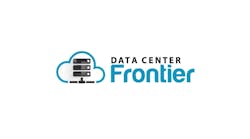What’s All the Hype Around CMMC 2.0 Compliance? Everything You Need to Know About This Cybersecurity Secret Weapon
If cybersecurity and compliance are at the top of your organization’s agenda, CMMC (Cybersecurity Maturity Model Certification) 2.0 is undoubtedly flashing on your radar. In recent months, there has been much buzz around what it is and what it takes to get certified. In all reality, the talk is more than mere noise surrounding a fleeting trend. It represents a pivotal shift in not only the implementation of cybersecurity standards and requirements but also in the very approach organizations must take to safeguard their digital assets and sensitive information.
Specifically crafted by the U.S. government, CMMC 2.0 was developed to ensure companies working with the U.S. Department of Defense (DoD) uphold the highest cybersecurity standards. What’s more, CMMC 2.0 represents a critical opportunity for organizations to differentiate themselves in a highly competitive market landscape. In other words, it could very well be your secret weapon to achieving next-level success.
Let’s explore how achieving CMMC 2.0 compliance, along with adhering to the NIST framework, can play an unexpected, yet integral role in your cybersecurity strategy.
Decoding CMMC 2.0
Ready or not, it is anticipated that CMMC 2.0 compliance will be required by the end of 2026 for managed service providers (MSPs), managed security providers (MSSPs) and other companies that do business with the DoD or its supply chain partners, such as data centers. Compliance is essential for protecting government data and maintaining your status as a trusted and approved federal contractor. CMMC 2.0 builds upon the existing regulations and frameworks of 1.0 and is based heavily on the National Institute of Standards and Technology Special Publication 800-171 (NIST SP 800 171). NIST requires documentation of procedures and management and review of cyber events to ensure sensitive information on federal contractors’ IT systems and networks, specifically Controlled Unclassified Information (CUI), is protected.
CMMC 2.0 consists of three maturity levels, each outlining specific cybersecurity practices and processes for mitigating a variety of threats. CMMC Level 1 adheres to Federal Acquisition Regulation (FAR) 52.204-21 standards. Level 2 aligns with NIST SP 800 171 directly. CMMC Level 3 follows protocols set forth by NIST SP 800 171 and some access controls from NIST SP 800 172. CMMC Levels 2 and 3 also require verification by a third-party auditor to approve security standards, conduct a risk management assessment and meet stringent CMMC compliance standards.
The Competitive Advantage of Compliance
While achieving CMMC compliance is a lengthy, intensive and potentially costly process, the time and resources required can pay off in major ways. First, CMMC 2.0 compliance serves as a distinguishing factor in a highly saturated data center and MSP market. It showcases an organization’s forward-looking, responsible approach to cybersecurity, setting them apart from competitors. Beyond unlocking access to lucrative government contracts, certification also increases your appeal to companies across industries, allowing you to expand your market reach to a wide range of businesses seeking a trusted, proven security-focused partner.
Finally, CMMC 2.0 compliance equips MSPs and data centers to not only talk the talk but walk the walk when it comes to robust risk management practices and incident response capabilities. This not only enhances client confidence but also solidifies your position as a reliable, authoritative partner capable of effectively safeguarding client data and assets.
Factoring In Time and Resources
While the CMMC certification deadline is over two years away, now is the time to get the process going, especially if you want to beat the competition to the punch. The implementation time frame depends on three main factors: the level of certification you are required to comply with, the current state of your NIST SP 800-171 implementation and the size and scope of your system. On average, it will take most organizations nine to twelve months to achieve CMMC Level 2 and 3 compliance and to be ready for the certification assessment. CMMC Level 1 compliance is less involved and can be accomplished in approximately six to eight months.
In addition to a significant time commitment, CMMC certification involves some costs. To break it down, expenses will vary based on the certification level, the complexity of your business and your organization’s current infrastructure and security compliance. Generally, the higher the certification level, the greater the cost, particularly when third-party assessments are involved. Costs can vary significantly, ranging from $3,000 for Level 1 certification to as much as $100,000 for Level 3, so be prepared for this wide spectrum of expenses.
Keep in mind the ongoing expenses after certification. Normally, organizations are required to undergo reassessment every three years for Level 2 and Level 3, aligning with the three-year validity of a CMMC certificate. However, for CMMC Level 1 self-assessments, annual evaluations are necessary.
From Compliance to Competitive Edge
By embracing CMMC 2.0 compliance, in addition to security standards for other industries, organizations will be able to unlock a potent secret weapon for success in today's highly regulated environment. Being a trusted partner that complies with changing security requirements is worth its weight in gold, especially amid exploding digital expansion and rapid AI adoption. At ark data centers, we undergo client and external audits against several security standards, including PCI, HIPAA, NIST, SOC 1 and SOC 2, to help organizations demonstrate compliance across multiple industries, including financial services, healthcare, manufacturing and technology.
Beyond regulatory adherence, security certifications unlock the door to a powerful hidden advantage for MSPs and data center providers. Proactive security certification signifies a deep commitment to robust cybersecurity practices, positioning businesses as trustworthy partners in an era where data security is paramount. Those who invest in and embrace the process will gain a decisive edge, securing coveted contracts and bolstering their reputation as leaders in cybersecurity excellence.

Mark Cooley
Mark Cooley is VP of Security and Compliance at ark data centers. Mark has nearly 20 years of experience in the IT industry with Involta. In his current role, he oversees Involta’s security program, expanding the company’s protective offerings and security awareness programs. Mark is a Certified Information Systems Auditor (CISA) recognized by the International Systems Audit and Control Association (ISACA) and a Certified Information Systems Security Professional (CISSP) recognized by the Information System Security Certification Consortium (ISC2). He has a bachelor’s degree from Youngstown State University. He was a former boy scout and lends that experience to the soft skills he acquired needed to be a successful leader today.
ark data centers is a modern digital infrastructure brand that delivers agile, scalable enterprise-class solutions. ark's assets span uniquely positioned data centers across emerging edge markets, network infrastructure and IXs to respond to the AI surge.






